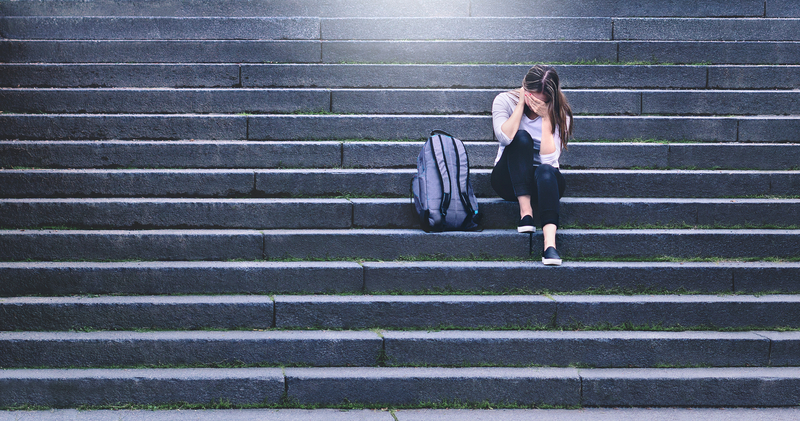
When people deal with anxiety, it can be crippling, and that’s why it’s vital to learn ways to manage it. Academic anxiety is a rising and wide-scale issue. College is a significant milestone in life, and students should be proud of themselves and the hard work they’ve done to get to that point. Celebration and stress sometimes go hand-in-hand. Change is inevitable, but can be stressful. And navigating the college experience with its plethora of changes–such as making new friends, taking on new courses, and living alone–without the comfort or reliability of family can be stressful. Some stress can actually be advantageous, but constant stress can prevent you from getting work done. It can also have an impact on the way you deal with conflict in the future and your overall health. Academic anxiety is genuine and valid, and if you’re experiencing it, you’re far from alone.
First Steps Toward Success
The two components of test anxiety are emotionality, which involves physical and emotional symptoms, and behavioral and cognitive effects, which come from the vicious cycle of anxiety. This cycle includes a trigger, followed by fear, followed by stress, followed by worry, followed by anxiety, and then it repeats until the cycle is forcibly broken. You can change these symptoms and stop these cycles by changing the way you think, and you can do that by maintaining continuous positive dialogue. Then, you can change how you feel and how things affect you. Finally, you can change your behavior, including your actions and reactions.
What to Avoid
According to The JED Foundation, “Recent surveys show that many students watch TV, scroll through social media, or play video games as a way to cope with school-related stress. In small doses, doing this might give you a much-needed break from studying. But using screens as a distraction (or escape) can worsen your stress, especially when it means that unfinished work piles up.” Therefore, it’s crucial to avoid the overuse of screens. Other addictive entities can protract academic anxiety as well.
It’s important to avoid abusing alcohol or substances. Overusing alcohol or drugs can hinder progress academically, mentally, and physically. Abusing substances can also protract feelings of anxiety or depression. It can also severely distract from the priorities of schoolwork and class attendance, as well as self-care and relationships. These are the things to avoid–not the challenges themselves.
Helpful Tips
- Don’t avoid challenges, approach them head-on. According to Nicole J. LeBlanc, MA & Luana Marques, PhD, “College is challenging and many students cope by avoiding stressors (skipping class, staying in bed all day). However, we know that avoidance tends to make anxiety worse over time. Instead, practice taking small steps to approach anxiety-provoking situations. If you’re struggling in a class, try emailing the professor for help.” You can also approach people in class if you’re feeling lonely. It’s important to expose yourself to potentially anxiety-provoking situations in order to overcome the anxiety surrounding those situations.
- Find resources on or near campus. Most college campuses have resources and departments for students in need of support, academically or personally. It’s important to utilize your resources and reach out if you’re struggling. You can also ask advisors to recommend counselors if you need additional support for a mental health issue.
- Have a self-care regimen. Many students struggle with self-care habits, such as eating healthily, regular physical activity, cleanliness, or proper sleep without the structure of a home environment. However, developing a self-care routine can make a tremendous difference in your mood in and out of school. Meal planning, exercising, proper sleep hygiene, proper general hygiene, and avoiding using your bed for anything other than sleep are helpful hacks for self-care.
- Discover coping strategies that work for you. It’s important to discover your own best, which involves identifying strengths and weaknesses regarding academic performance. It’s also vital to identify the relationship you see between your body’s reactions and how you prepare for tests or school, when the best time to approach schoolwork is, and identify your preferred learning style. It also involves identifying if you’re intrinsically or extrinsically motivated and how that source of motivation impacts taking tests or your ability to study for tests, as well as identifying changes you can make in the way you prepare for tests that will help you take advantage of your learning style preferences.
Ultimately, test anxiety, procrastination, or any unhealthy habit is a learned response that can be unlearned and broken with time, effort, patience, and determination. There are a multitude of coping mechanisms and grounding techniques to manage academic anxiety, including breaking the cycle of stress and anxiety with practice, avoiding harmful substances and the overuse of screens, facing challenges directly, taking advantage of resources, and developing an effective self-care routine.
SEE ALSO: The Ultimate Guide to Efficient Note-Taking in Lectures















